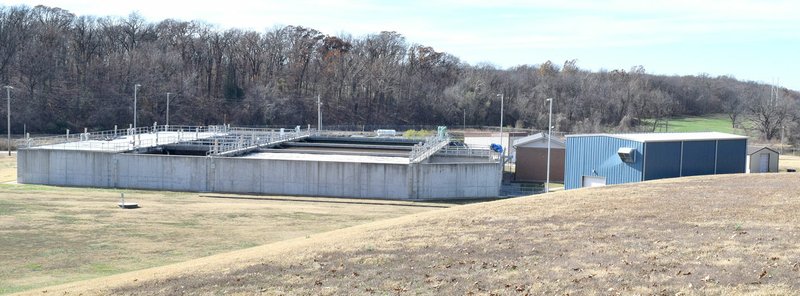DECATUR — After two years of studies, engineering reports, bond issues and a lot of sleepless nights for both the mayor and the public works director, the Decatur wastewater treatment plant received a permit to begin retrofitting the eight-year-old facility near Austin Road in western Decatur.
"This approval puts us in position since we already have all the funding in place to begin construction of the wastewater treatment plant," said Bob Tharp, Decatur mayor. "This will enable us to accept all of city of Centerton, Decatur and Simmons processing plant's wastewater, which will raise our capacity to 3.8 million gallons a day, with the capacity of going 4.6 million gallons a day in the future as Simmons, Decatur and Centerton grow together."
The plant received the state construction permit Nov. 22 from the Arkansas Department of Environmental Quality in North Little Rock. With the permit in place, the Decatur wastewater plant can begin construction immediately.
While the city is ready for the retrofit to the plant, it may take a few months before actual work can begin.
"It will take two months or so to order the equipment and have it shipped to Decatur," said James Boston, Decatur director of public works. "Once we receive this new equipment, we can begin working on the retrofit."
In September of 2015, Tharp and Boston went before the Decatur City Council to discuss the rising need to upgrade the wastewater plant. After a two month review of material presented to the council, Tharp called a second special council meeting Dec. 14, 2015, to establish which design-build team to select for the project. Later that evening, during the regular meeting, the full council ratified the decision to use Crossland Heavy Construction and McClelland Consulting Engineers, Inc.
During January and February of 2016, a design team made up of city council members and city officials collected information and, in March, the city began to research ways to expand the existing system without the added cost of building new structures. James Boston, city water director, Mayor Tharp and the design-build team, looked at three systems (including the existing system), mechanical clarifiers and a membrane system commonly referred to as MBRs. The latter was seen as the best for the Decatur plant. The membrane system will be added to the existing system with virtually no new construction.
The water quality coming from the new membrane plant, with an addition of a reverse-osmosis skid, will make that water palatable for general consumption.
Assuming that Simmons would have the capabilities of reusing 400,000 gallons a day and a reverse-osmosis skid would cost roughly $550,000, this system could be placed inside the existing Acti-Flo building, possibly reusing the influent and effluent piping of the current infrastructure.
The Decatur plant will be the first wastewater treatment facility in the state of Arkansas to use this process. There is one plant in Arkansas that uses this membrane process on the water side. Tharp feels confident that once the system goes into operation, sometime around late May early June, the plant will operate more efficiently.
"We expect the plant to operate at this level of performance or better in the coming years," Tharp concluded.
General News on 12/06/2017

